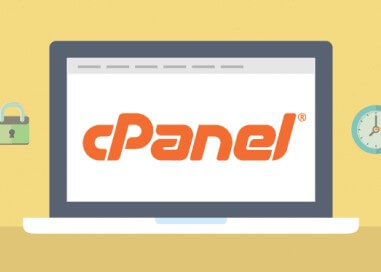cPanel is one of the most common Web hosting account control panels in Linux. It lets you handle all resources easily in one location. Today cPanel is the industry standard and is well known to most web developers.
Intuitive and simple to use, cPanel empowers you to handle a full performance Web hosting account. Whether it is creating new FTP users and email addresses or tracking tools, subdomains are developed and software enabled.
What is cPanel hosting?
cPanel hosting is essentially Linux Web hosting that includes cPanel installation. CPanel has its advantages and disadvantages but in most situations it works pretty well and makes a sensible choice when you’re looking for a control panel solution. Here’s what you should do:
Pros:
- Easy to learn
- Easy to use
- Saves time and money
- Tried and tested
- Includes software auto installers
- Plenty of tutorials/support available online
Cons:
- Number of features can be overwhelming
- Relatively easy to accidentally change important settings
- Some hosts run outdated software
- Can cost more and is rarely offered with free hosting
Alternatives to cPanel
There are thousands of alternatives to cPanel out there and because each hosting company is different, you’ll need to consult with each potential host to get an idea of what control panel solutions they’re using. Here at Hostinger, we’ve built our own custom control panel, which is compatible with all web hosting plans. This shares some parallels with cPanel and helps us to be more versatile when tailoring to our users ‘ needs.
Yet cPanel hosting is something you can also find at our sister company Hosting24. Annual and longer plans include a free domain name, so you can get all the ingredients to make a single purchase on the internet!
Essentially, whether you are using cPanel or an alternative doesn’t really matter, as long as you are able to achieve what you want. If you need to do something different on your control panel then double check with the provider.
cPanel Tutorial: How to Use cPanel
Different cPanel configurations have different features but the good news is that browsing around and getting to know each of the different sections is pretty easy. Normally, when you first log in, you will see some metrics that log your resource usage (such as your CPU usage, your storage space available and your memory usage). It can provide a convenient way to keep an eye on the overall performance of your web site.
Once you’ve become comfortable with the success of your website, it’s time to take a look at the various modules. We gave a description of the most common cPanel modules below.
File Modules:

Preferences:

Databases:

If your website uses a content management system (CMS) then it will use a database to store posts, settings and other information. This section, then, is all about managing those databases. Common modules include:
- MySQL Database Wizard
- MySQL Databases
- phpMyAdmin
- Remote MySQL
Web Applications:

This is typically where your cPanel installation will allow you to install different types of software. It includes everything from blogs and portals to CMSs and forums. Common modules include:
- Drupal
- Joomla
- phpBB
- WordPress
Domains:

It’s not uncommon for webmasters to use one hosting account for multiple sites or to set up subdomains and redirects. This is the section in which you can manage that. Common modules include:
- Addon Domains
- Aliases
- DNS Manager
- Preview Website
- Redirects
- Subdomains
Metrics:

If you run a website then you will want to keep an eye on its results. That is where the modules for the metrics come in. Therefore, it’s all about giving you access to powerful information that can help you make better decisions about how your website functions. Modules include:
- Awstats
- Bandwidth
- CPU and Concurrent Connection Usage
- Errors
- Raw Access
- Visitors
- Webalizer
- Webalizer FTP
Security:

For most webmasters, security is a big concern, particularly if they are storing sensitive information such as usernames, passwords or financial information. It module will allow you to keep an eye on your hosting account’s main security settings Modules common to use include:
- Hotlink Protection
- IP Blocker
- Leech Protection
- SSH Access
- SSL/TLS
Software:

These modules are largely about PHP and Perl and aren’t necessarily needed unless you’re a more advanced user. Common modules include:
- Softaculpis Apps Installer
- Optimize Website
- Perl Modules
- PHP PEAR Packages
- CloudFlare
- PHP Version Selector
Advanced:

As the title suggests, these settings are also more useful for advanced users. Common modules include:
- Apache Handlers
- Cron Jobs
- Error Pages
- Indexes
- MIME Types
- Track DNS
Email:

Not all web hosting packages include email, but if your package includes both email and cPanel then this is where you’ll administer all of those email accounts. Common modules include:
- Address Importer
- Apache SpamAssassin
- Autoresponders
- Default Address
- Email Wizard
- Encryption
- Forwarders
- Global Filters
- MX Entry
- Track Delivery
- User Filters
Conclusion
In short, cPanel is one of Linux ‘ most common web hosting control panels, showing key performance metrics for your server and allowing you to access a number of modules including Files, Preferences, Databases, Web Applications, Domains, Metrics, Protection, Software, Advanced and Email modules.
Above all, cPanel hosting is basically Linux hosting which includes the installation of cPanel, making it a popular choice among webmasters. But there are plenty of alternatives out there, so if cPanel isn’t for you then you’re sure to find an acceptable control panel.




